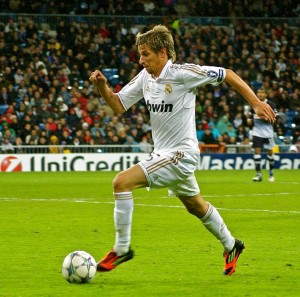Your Leadership Legacy: Why who you are is more important than what you do
Think of a leader that you admire and would like to emulate.
What is it about that person that impresses you the most?
 I often ask that question of people in my workshops. Some identify historical figures, some modern day civic leaders, athletes, musicians or public figures. Many talk about a current or previous boss they’ve had. And still others will speak of a teacher, a coach or a parent. The interesting thing about the subsequent discussion on the impressive qualities of these leaders is that it is almost never about what leaders do or have done, but rather WHO THEY ARE.
I often ask that question of people in my workshops. Some identify historical figures, some modern day civic leaders, athletes, musicians or public figures. Many talk about a current or previous boss they’ve had. And still others will speak of a teacher, a coach or a parent. The interesting thing about the subsequent discussion on the impressive qualities of these leaders is that it is almost never about what leaders do or have done, but rather WHO THEY ARE.
Words used to describe these people include honest, authentic, courageous, inspiring, sees the best in others and believes in them, visionary, respectful, communicative, not afraid to make mistakes, humble, engaging, walks their talk, builds a strong team, develops others, shares credit, and the list goes on.
Early in my career, I taught a lot of classes on how to lead – covering subjects like creating and communicating a compelling vision, delegation, setting goals, providing performance feedback, resolving conflict, etc. What I’ve realized through the years is that the extraordinary leaders are not necessarily people who have mastered all the techniques.
They are people who have the ability to speak to our hearts as well as our minds, and to awaken something in people that lies dormant, waiting to emerge. They then help people to tap these inner reserves and apply them to create something that makes the organization (or the world) a better place for everyone. Great leaders learn to do this by first doing it for themselves. The rest they pick up along the way.
Leadership strategies, tools and techniques fall flat unless the people who employ them have strong personal foundations. Extraordinary leaders have learned over the years who they are and they bring the best of themselves to everything they do. Much of their wisdom has come from making mistakes and learning from them in ways that allow others to benefit. They refuse to be something they are not and have the courage to take a stand. They care deeply about others, but are independent of the good opinion of others and therefore free to be themselves.
The best of leaders, regardless of role, title, or vocation, bring out the best in people. Often they see things in others before they are able to see it in themselves. From this space, they interact and communicate with the person one is becoming – the strong, capable, smart, willing, and resilient contributor who then becomes instrumental in translating vision into reality. The extraordinary leader knows that anything less than this is an illusion.
Great leaders do not make their people great. They simply help others to see the possibilities and invite them to the table. They present us with a vision and a choice and hold a space within which we can show up and grow. The rest, of course, is always up to us.
